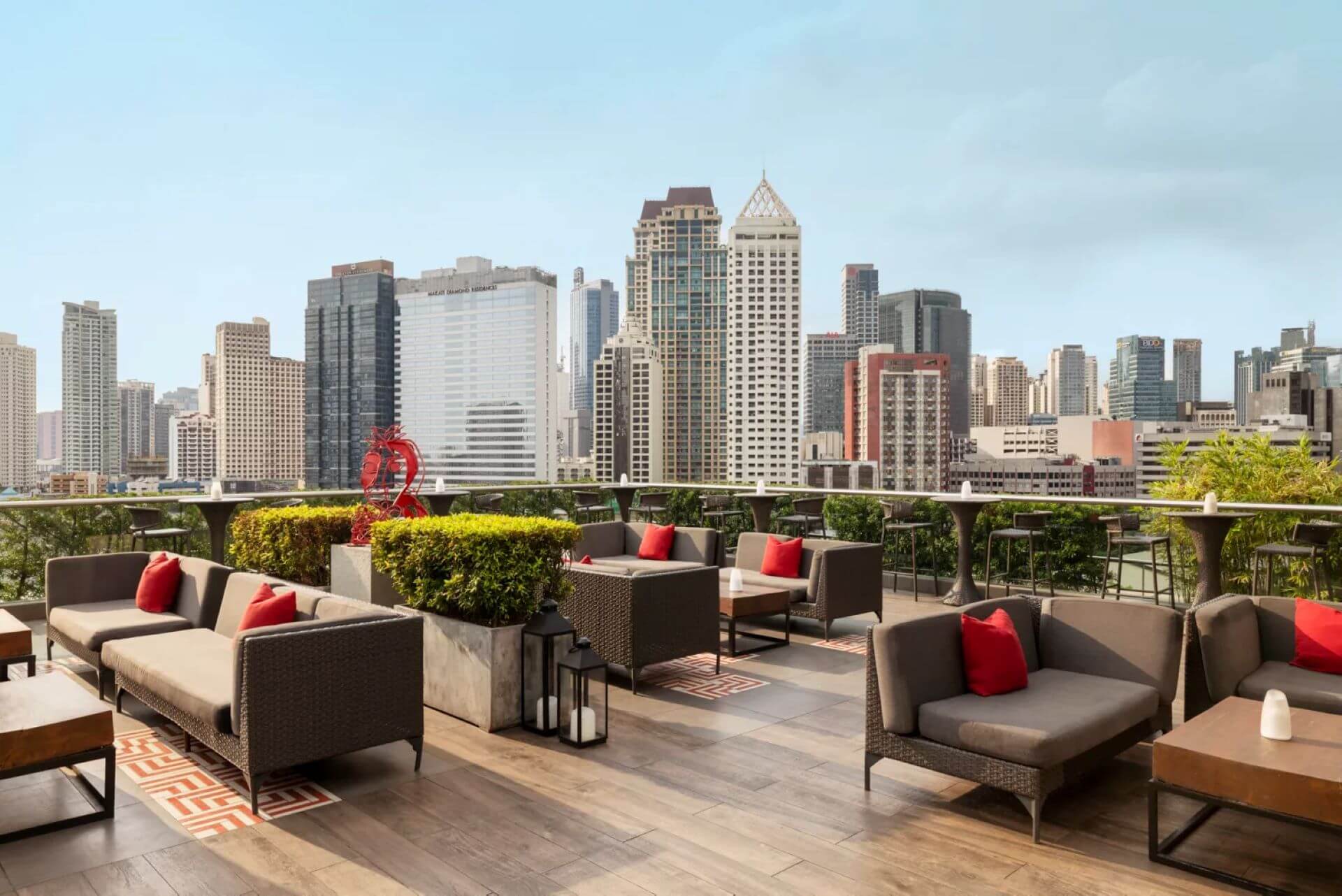Owning and managing rental properties can be a rewarding venture, but maintaining a steady and reliable stream of income relies heavily on keeping good tenants. In the dynamic real estate landscape of the Philippines, where demand for quality housing is ever-growing, keeping tenants satisfied and committed to your rental properties is crucial. As a landlord, it's not just about finding tenants or renters for your investment property; it's about creating an environment that encourages them to stay long-term.
In this blog post, you will discover seven essential tips on how to maintain tenants. From fostering positive relationships to implementing strategic property management practices, these insights will empower landlords to not only attract responsible tenants but also to effectively manage and build lasting connections that benefit both parties involved. Let's explore the keys to tenant retention in the rental market in the Philippines.
1. Clear communication and proper notice
First on the list of tips is to have clear communication. Communicating clearly is important for maintaining a positive landlord-tenant relationship in the Philippines. Ensuring that there is a transparent and open line of communication is crucial. Good tenants appreciate landlords who provide clear and concise information about property rules, policies, and regulations, rental agreements, and any necessary updates. Renters also like landlords who give proper notice when paying rent or lease renewals. Regularly communicating important information, such as upcoming maintenance schedules, landlord's service appointments, or changes in property management, helps tenants save time and feel informed and valued.
Additionally, addressing concerns promptly and being approachable fosters a sense of trust and mutual respect. By prioritizing clear communication, landlords can establish a positive rapport and clear expectations with their tenants, creating a harmonious living environment and increasing the likelihood of retaining good tenants in the long run.
2. A fair and transparent lease agreement
Next on the list of ways to effectively manage and maintain a tenant is to have a fair and transparent written lease agreement. Maintaining good relationships between landlords and tenants is crucial for the overall success of property leasing. One key aspect that can significantly contribute to this is the implementation of fair and transparent lease agreements. Clear and comprehensive lease terms provide tenants with a sense of security and trust, fostering a positive landlord-tenant relationship.
By clearly outlining the terms and conditions, including rent amounts, due dates, and responsibilities, both parties can avoid misunderstandings and disputes. In a market where trust is paramount, transparent lease agreements contribute to a fair and harmonious leasing environment. This practice not only ensures that tenants feel valued and respected but also promotes a positive reputation for landlords, attracting and retaining responsible and potential tenants who are more likely to renew their leases. Ultimately, prioritizing fair and transparent lease agreements is a strategic move that enhances the overall stability and success of property management in the Philippines.
3. Prompt Maintenance and Repairs on the Rental Property
Third on the list is to have proper maintenance requests and repairs on the rental properties. Prompt response to maintenance requests for repairs plays a pivotal role in retaining good tenants in the Philippines, forming an essential component of effective property management in an investment property. Tenants appreciate a well-maintained living space, and addressing maintenance issues promptly not only enhances their quality of life but also fosters a positive landlord-tenant relationship. The Philippines has weather conditions that can be unpredictable and occasionally harsh, so it becomes even more crucial to ensure that properties are in good condition and being taken care of by the property managers.
Regular inspections, swift responses to repair requests, and proactive maintenance measures demonstrate the commitment of property managers to tenant satisfaction and safety. By addressing concerns promptly, landlords not only create a comfortable living environment but also show tenants that their well-being is a priority. This attention to property upkeep is likely to build trust and loyalty, encourage tenants to stay longer, pay rent on time, foster a sense of belonging, and ultimately contribute to a more stable and harmonious rental experience.
4. Fair rent pricing on your investment property
Next on the list of ways to maintain tenants is to have fair rent pricing. For property managers and landlords, fair rent pricing stands out as a crucial factor in retaining long-term tenants. As the demand for rental properties continues to rise, they must strike a balance between maximizing their returns and ensuring affordability for their tenants.
Fair rent pricing not only fosters a positive landlord-tenant relationship but also contributes to good tenant rental status and tenant satisfaction and loyalty.
Tenant rental status must be positive in a market where tenants are increasingly discerning. Setting a reasonable and competitive rent ensures that tenants feel they are receiving value for their investment. Landlords who prioritize fair rent pricing are more likely to attract and retain responsible, long-term tenants who appreciate the mutual understanding of a fair deal. This approach not only establishes a positive reputation for the landlord but also creates a stable and harmonious rental environment that benefits both parties in the long run.
5. Incentives and Rewards
Fifth on the list of ways to maintain tenants is to have incentives and rewards for the tenants. Among the various strategies to achieve tenant satisfaction and loyalty, incorporating effective incentives and rewards stands out as a key tip. Offering tangible benefits, such as discounts on rent collection, the landlord's consent to complimentary maintenance services, or even small gifts on special occasions, can create a positive and memorable experience for tenants. In a country where strong interpersonal relationships play a significant role, personalizing incentives based on tenant preferences fosters a sense of appreciation and belonging. This approach not only strengthens the landlord-tenant relationship but also encourages tenants to renew leases, pay rent on time, and become long-term occupants. By recognizing and rewarding the loyalty of good tenants, property owners in the Philippines can establish a harmonious and mutually beneficial living arrangement that contributes to the overall success of their real estate ventures.
6. Respect privacy.
Next on the list of ways to effectively manage a tenant is to respect their privacy. In a culture that values close-knit communities and strong interpersonal bonds, tenants greatly appreciate their personal space and privacy. As a landlord, it is essential to establish boundaries and adhere to ethical practices when it comes to accessing the tenant's living space. Avoid unexpected visits, and always seek permission before entering their premises. Additionally, exercise discretion when handling personal information, ensuring that tenant records and details are kept confidential. By respecting their privacy, landlords not only foster a sense of trust but also contribute to a positive living environment. This approach creates a harmonious atmosphere that encourages tenants to stay long-term, knowing that their personal space and information are treated with the utmost respect and consideration.
7. Community Building
And lastly, fostering a sense of community is a pivotal element in retaining good tenants. Community building transcends the confines of brick and mortar, extending into the realm of social cohesion and shared experiences. Property managers and landlords can enhance tenant satisfaction and loyalty by actively promoting a sense of belonging among residents. This can be achieved through organizing community events, creating communal spaces, and encouraging open communication channels. In the Philippines, where close-knit relationships hold immense cultural significance, tenants are more likely to stay long-term when they feel a connection to their neighbors and the property. By fostering a supportive and friendly community atmosphere, property owners not only create a positive living environment but also contribute to the overall appeal of their rental properties, ensuring the retention of valued tenants.
In conclusion, fostering a positive landlord-tenant relationship is essential for maintaining good tenants in the Philippines. Building and maintaining good relationships with tenants in the Philippines involves a combination of clear communication, fair treatment, and a proactive approach to property management. By implementing these strategies, landlords can not only attract high-quality tenants but also retain them for the long term, creating a stable and profitable rental property. The tips provided in this blog can serve as a valuable guide for landlords looking to create a conducive environment that encourages long-term tenants.

.png)






